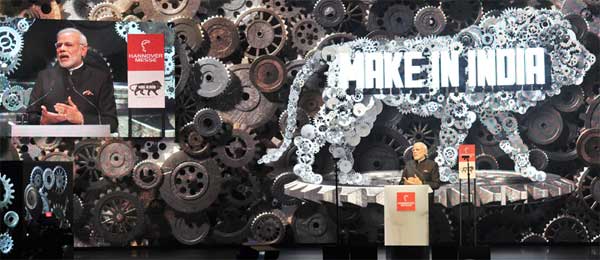New Delhi, April 13 It was under the able leadership of the city-state of Singapore in southeast Asia that the dream of a new Asian century turned into a reality, External Affairs Minister Sushma Swaraj said on Tuesday.
“It was in Singapore, under the towering figure of Lee Kwan Yew, that the dream of a new Asian century first became a reality,” she said in her keynote address while launching the book “George Yeo on Bonsai, Banyan and the Tao”, a collection of 91 speeches and essays of the former foreign minister of Singapore and current chancellor of the revived Nalanda University.
“The transformation of Singapore from an impoverished colonial port to the ‘red dot’ that today emblazons the East is proof of what sustained and incorruptible commitment to development can achieve,” Sushma Swaraj said.
Stating that nations, both in the east and the west, looked to Singapore for inspiration and emulation, Sushma Swaraj said it has “created a nation of splendid diversity, while keeping the aspirations of the individual citizen’s growth at the centre of its aspirations”.
She also described Yeo as a philosopher-statesman of our times.
“The notion of a philosopher-statesman is not an idea that one hears too often these days, but perhaps it is appropriate that it is Singapore, like the ancient city states of Greece, that has produced one for our times,” Sushma Swaraj said.
She said Yeo combined the discipline and depth of the scholar with the practicality of an administrator and the strategic vision of a statesman.
“I have no doubt that his book will be an invaluable resource, not only for those who seek to understand the success of Singapore, but to all those who are invested in the rise of Asia, the defining dynamic of our age,” the external affairs minister said.
She said that in the Eastern imagination, Yeo’s characterisations of the environment and its nurture through the banyan and the bonsai have a profound resonance.
“At its core, they highlight our deep and abiding connection to nature that we regard as sacred,” Sushma Swaraj said.
“But they also highlight the bonds within our communities, and the linkages beyond. I cannot but agree with his metaphor of civilisation as a garden that needs to be continually tended.”
She also spoke of the idea behind the restoration of Nalanda Univerisity.
“Indeed, when India first suggested the restoration of Nalanda University, it was the thought of the revival of an ancient centre of learning that would bring together scholars and civilizations that animated its beginnings; where, to modify, the beautiful phrase of Mr. Yeo’s friend Wang Gungwu, the mandalas of the past and the future would overlap,” she stated.
“We are honoured that a scholar-statesman from the East now leads this institution.”
Former union home and finance minister P. Chidambaram described Yeo as a sharp debator who defended the Singapore model to the world.
“George is a true friend of India and a great admirer of China,” Chidambaram, who also happens to be a good friend of Yeo, said.
On his part, Yeo said there was something in India that attracted him and family to this great nation all too much.
“Its culture, its people, its big heart,” he said.
Also among the panelists were Singapore’s High Commissioner to India Lim Thuan Kuan, former vice-chairman of the Planning Commission N.K. Singh and Trinamool Congress member of parliament Sugata Bose.

